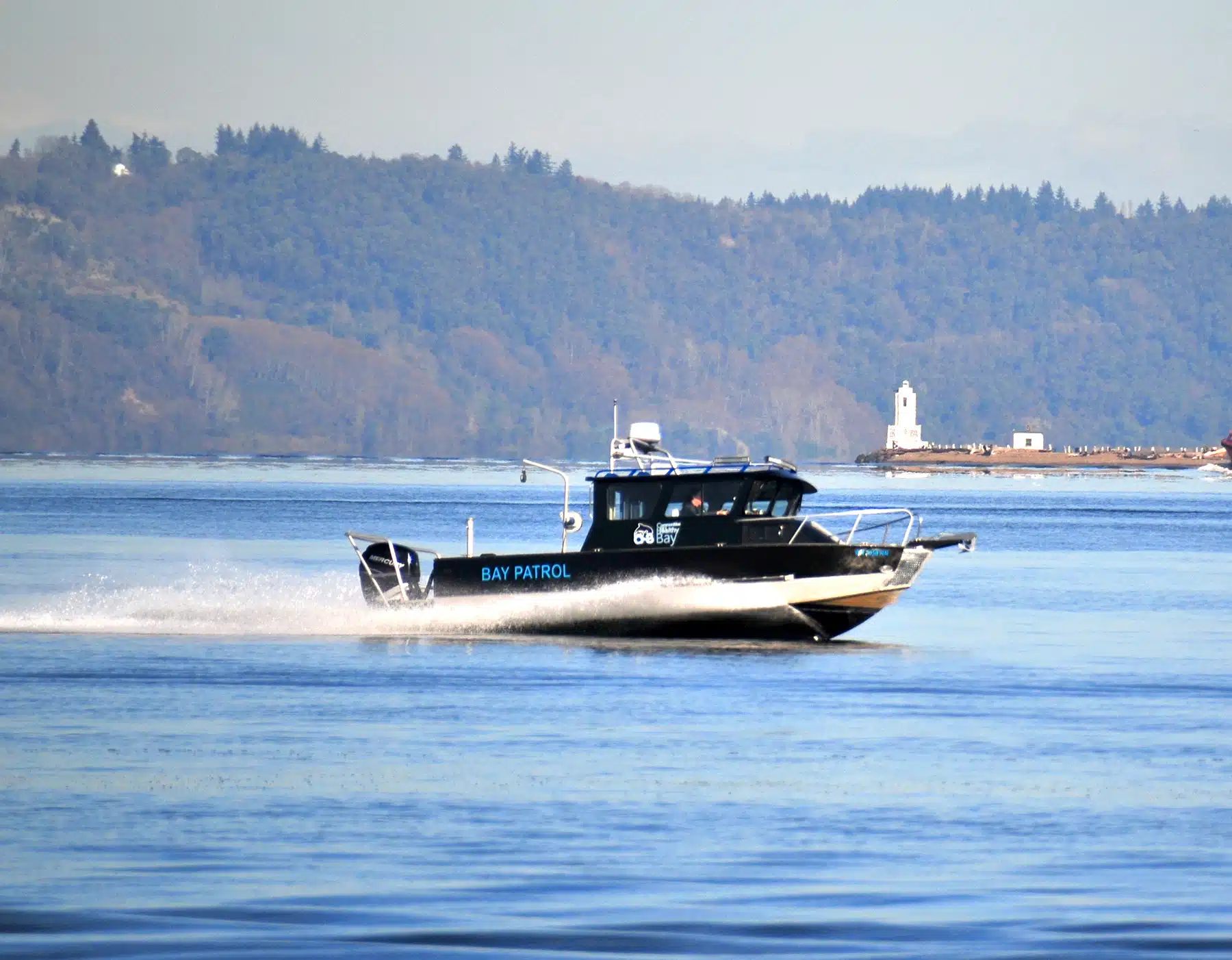
Earlier this month we launched the first event of our Science x Art Series, an expansion of our Environmental Justice Camps (EJC). Each month in the series, our EJC girls get to experience the intersection of art and environmentalism through different activities and mediums. Throughout the series, the girls are mentored by local artists and entrepreneurs with the goal of creating a portfolio to present during our summer deck party in mid-June.
For our first event, our EJC girls spent the day at the Museum of Glass (MOG) working alongside Hilltop Artists, artist Kait Rhoads, and other MOG staff and volunteers. Participants learned about the Kelp Highway on the big screen, identified the different chemicals that create colored glass, and explored the histories of artists and techniques in the gallery. Together, the girls learned the process of fusing glass, each designing several pieces through their own creative process. This event was meant to fuse these girls together though a hands-on learning experience that they can take home and share with others.
Join us in helping preserve Commencement Bay by marking storm drains in your neighborhood. These “No Dumping | Drains to Puget Sound” placards remind our neighbors that anything goes down the storm drain will end up in the Puget Sound!
Surface water runoff is a major issue in Pierce County that is hard to tackle, and only gets worse when our neighbors dump pollutants into our storm drains. Without proper signage, things like paint, oil, and other harmful pollutants may end up in Commencement Bay and the larger Puget Sound, unfiltered. So, gather your family, friends, troop, or team to sign up for a volunteer shift to help us mark storm drains! As the weather gets drier, people start to paint their homes, wash their vehicles, and fertilize their lawns, and may be tempted to toss some of these products down the drain when they are done. It is critical we get the proper signage to reduce pollution entering Commencement Bay!
After about a year and a half of preparation and work to hold Electron Hydro accountable for the turf and rubber beads they spilled into the Puyallup River, we have reached a settlement with them. Electron has agreed to get a Clean Water Act permit, which means that should they ever chose to re-open the dam again (it is currently closed due to court order), they will need to meet Clean Water Act standards, and they are paying a substantial portion of the attorney’s fees we accumulated in this case.
Our case was one of two Clean Water Act cases against Electron Hydro. The first was a federal government case that we, Puget Soundkeeper Alliance, and the Puyallup Tribe of Indians joined as intervenors. Because we believed there were important claims not addressed by the federal case, we filed a separate case against Electron. Additionally, the Washington Attorney General filed a criminal case against Electron and its owner earlier this year. Further, there are Endangered Species Act cases against Electron, one of which settled earlier this week as well. Our separately-filed case is the one that has now settled, and does not impact the federal clean water case nor the Attorney General’s case.
This settlement is the first of what we hope are many enforcement hammers to fall on Electron. The federal government Clean Water Act suit continues to move forward, and we are committed to staying involved in that case along with the Puyallup Tribe of Indians.
This month we invited the 2022 cohort of the Washington Trails Associations’ Emerging Leaders Program to our offices for a day in the life of CHB. We took a group of seven BIPOC young leaders on a Bay Patrol to experience Commencement Bay and its neighboring waters, went on a walking tour discussing Tacoma’s legacy of toxic pollution, and facilitated a leadership workshop.
Washington Trails Association has provided free gear and clothing rentals to our Environmental Justice Camp participants, outfitting the girls head to toe. Collaborating with other local like-minded groups allows us to extend our community network and provide support for those seeking access to greenspace.
|
|
|